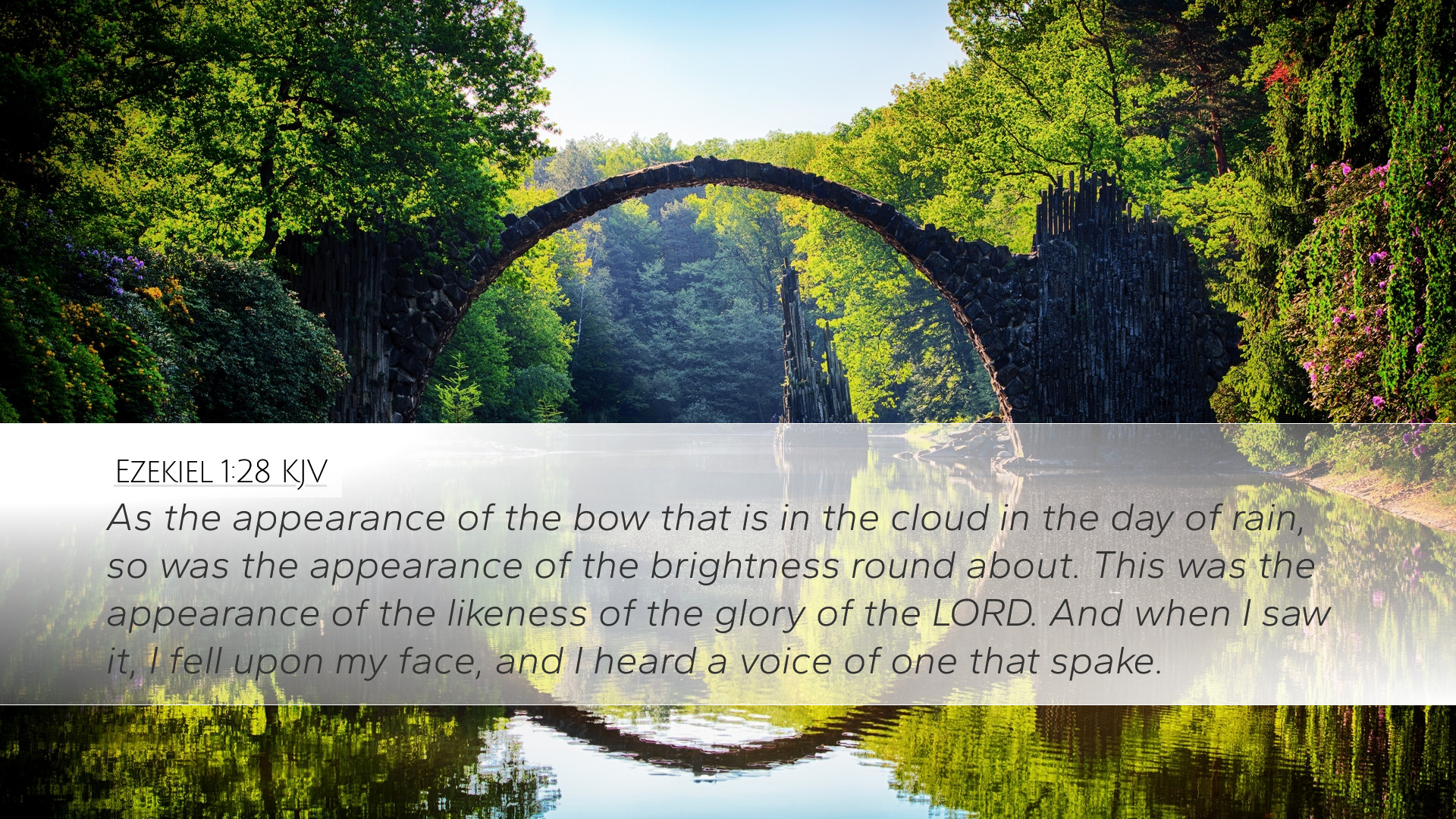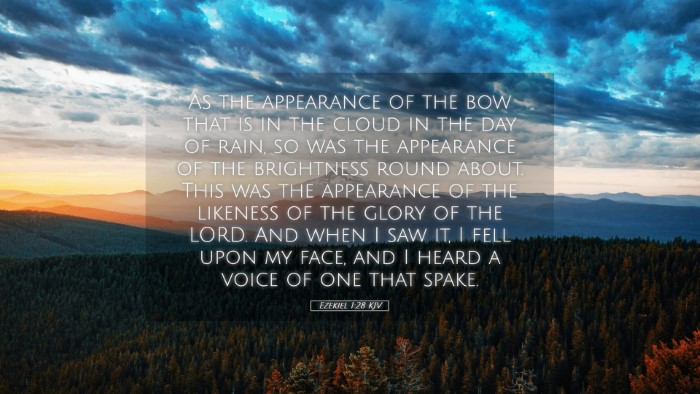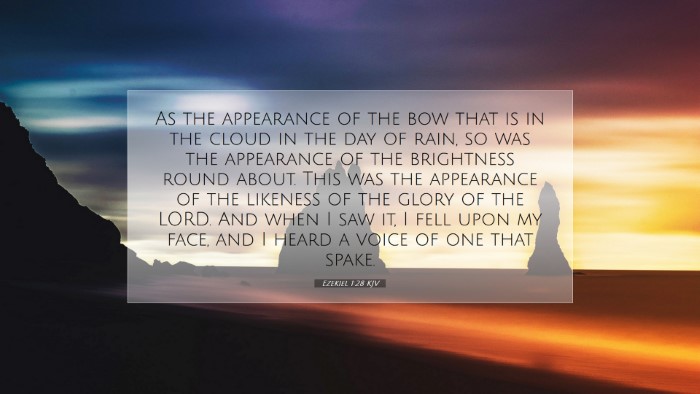Commentary on Ezekiel 1:28
Ezekiel 1:28 (KJV): "As the appearance of the bow that is in the cloud in the day of rain, so was the appearance of the brightness round about. This was the appearance of the likeness of the glory of the Lord. And when I saw it, I fell upon my face, and I heard a voice of one that spake."
Introduction
The verse from Ezekiel 1:28 encapsulates a profound vision experienced by the prophet Ezekiel. It serves as both a theological and experiential turning point within the prophetic literature. Insights from public domain commentaries shed light on the rich imagery, theological implications, and the spiritual significance of this passage.
The Appearance of the Divine
Matthew Henry describes the vision of God provided to Ezekiel as deeply significant. He notes that the "appearance of the bow" signifies a token of divine covenant and mercy, reminiscent of God's promise to Noah (Genesis 9:13). The bow, typically seen after a rainstorm, symbolizes hope amid judgment and a reminder of God's enduring faithfulness.
Adam Clarke expands this perspective by noting that the imagery of the rainbow serves as a reminder of God’s presence and glory, suggesting that just as the rainbow emerges from the storm, so does God's glory reveal itself in moments of great despair. Clarke emphasizes that God's manifestation should inspire reverence and awe, as indicated by Ezekiel's reaction of falling on his face.
The Glory of the Lord
This verse concludes by stating, "This was the appearance of the likeness of the glory of the Lord." Albert Barnes provides an important distinction here, pointing out that while Ezekiel saw a vision of glory, it was not an exact representation of God Himself but rather a portrayal of His divine majesty. This echoes the notion that God is ultimately incomprehensible, and any manifestation of His presence is filtered through human understanding and language.
The Response of the Prophet
The reaction of Ezekiel—falling upon his face—is a common motif in prophetic encounters. Matthew Henry addresses this response, insisting that it reflects true humility and submission before the divine. Ezekiel's physical prostration serves not only as an act of worship but also as an acknowledgment of human inadequacy in the face of divine holiness.
Albert Barnes notes that such a posture signifies both fear and reverence. It is an important reminder for believers today that authentic encounters with the divine invite both adoration and recognition of our place in the presence of a holy God.
The Voice of One Speaking
Ezekiel concludes the vision by stating he "heard a voice of one that spake." Adam Clarke emphasizes the importance of this sound—indicative of God’s willingness to communicate with His people. The voice represents authority and the initiation of divine revelation. For Clarke, this marks a critical moment as it transitions from vision to communication, indicating that God desires to convey His will and purpose to humanity.
Lessons for Pastors and Theologians
- Divine Visibility: The imagery and the vividness of Ezekiel's experience challenge pastors and theologians to consider how the glory of God is made manifest in their own ministries.
- Humility in Worship: The response of falling on one’s face illustrates the necessary humility when approaching God, encouraging leaders to cultivate a heart of reverence in worship.
- God's Communication: Understanding that God continues to speak is vital; thus, study and prayer must accompany all ministry work to hear His voice.
- Covenant Reminders: The symbolism of the rainbow serves as a reminder of God's promises, fostering hope and commitment as leaders navigate challenges in their congregations.
Conclusion
Ezekiel 1:28 encapsulates a moment of divine revelation filled with deep theological implications. Through the combined insights of Matthew Henry, Albert Barnes, and Adam Clarke, one can appreciate the multifaceted nature of God’s revelation and the appropriate human response to it. This verse encourages theological depth for scholars and an experiential honesty for all who seek to engage with the divine in their lives and ministries.


